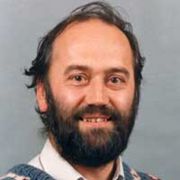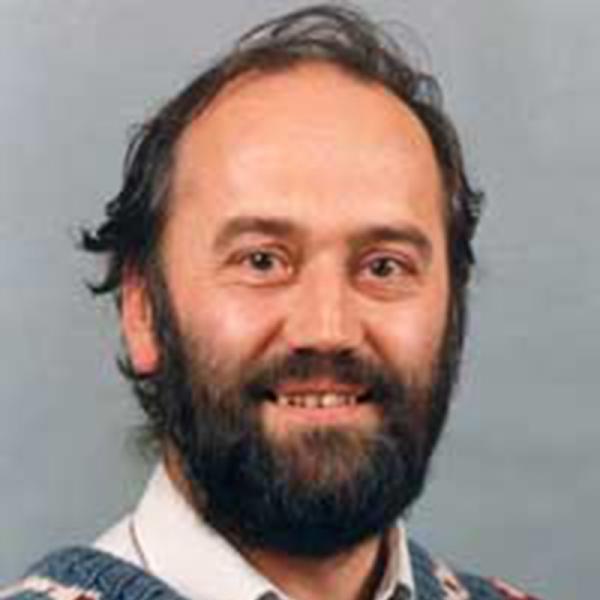Professor John Collis
BA, MA, PhD, FSA, MIFA
School of History, Philosophy and Digital Humanities
Emeritus Professor


- Profile
-
Professor John Collis is recognised as a leading expert on the European Iron Age and also an outstanding excavator.
His research ranges across the processes of urbanism, Iron Age commerce, and excavation methodology.
Though he has taken early retirement, he will continue to be closely involved in the teaching and research in the department.
He is an inveterate traveller in Europe, and a familiar participant in conferences in Germany, France and Spain, and the annual conference of the European Association of Archaeologists.
As a student he studied in Prague and West Germany. He is interested in computerisation, especially graphical techniques and databases for use on archaeological projects. He has also made one award-winning film on excavation techniques: Wigber Low.
- Professional activities and memberships
-
He has been involved in numerous local and national organisations in Britain and France, such as the Council for British Archaeology.
At present in France he is on the council of the Association Française pour l'Etude de l'Age du Fer, and the advisory council for the prestigious Mont Beuvray project.
In Britain he is a member of the Professional Training Committee of the Institute of Field Archaeologists.
He was until recently a member of the Archaeological Training Forum, and organises a Teaching and Training committee of the European Association of Archaeologists.
Publishing
For the last 20 years he has run a small publishing firm, J.R. Collis Publications which had produced over 50 monographs on archaeological topics; He has recently linked up with Equinox Press.
- Research areas
- Excavation
-
John Collis started archaeology as a schoolboy in his native city of Winchester, and has published one monograph on the excavations which took place there in the 1950s and early 1960s.
In the 1960s he carried out one of the first large scale excavations of an Iron Age and Roman native settlement in this country, at Owslebury, near Winchester.
In 1971 he directed excavations in the city centre of Exeter which resulted in the discovery of a legionary fortress.
He has also been involved in excavations of Bronze Age and Migration period barrow sites in the Derbyshire Peak, and a deserted medieval village at Montarrenti, near Siena in Italy.
His major excavations in recent years have been in the Auvergne area of central France, where he has been following up his doctoral thesis at Cambridge on the beginnings of urbanisation of temperate Europe during the Iron Age.
Mainly he has excavated sites at La Grande Borne and Patural near Clermont-Ferrand, small open settlements which were abandoned at the time the local urban sites were founded at the end of the second century BC, but which were involved in such industries as metalworking (including manufacturing gold and silver coins), bone and glass working, as well as trading extensively with the Mediterranean world.
Recently, under his colleague Vincent Guichard, the team has been looking successfully for evidence of Julius Caesar's attack on Gergovia, where he was defeated by the Gallic leader, Vercingetorix, and also, under Matthieu Oux, the cult site on Corent.
- Field survey
-
He has also been involved in studies of landscape history, notably the Bronze Age reaves (land boundaries) on Dartmoor which he discovered and studied with Andrew Fleming.
In the next few years he plans to continue similar work in the Auvergne, especially in the Cantal where his team has recently discovered prehistoric field systems.
The Cantal survey will also include the medieval burons (summer shielings) where until recently the famous Salers cheese was made; the origins of these sites was unknown, but goes back at least to the early medieval period when mazucs, subterranean houses, were constructed.
He is also carrying out a field survey, in collaboration with the Complutense University, Madrid, near Avila, around the Iron Age oppidum of Ulaca.
- Writings
-
His major books have been on the Iron Age of Europe, Defended Sites of the Late La Tene in Central and Westen Europe (1974), Oppida: earliest towns north of the Alps (1984), and The European Iron Age (1984).
The latter book has become the standard introductory text book on the Iron Age, and after several reprints, he plans to rewrite it in the next couple of years.
He has recently completed a book on excavation techniques Digging up the Past, but his main research area, on which he has written several articles, is the Celts.
His sceptical views ('the Celts in Britain are a modern invention') have been gathered into a book The CELTS Origins, Myths Invention and which is already proving controversial!
